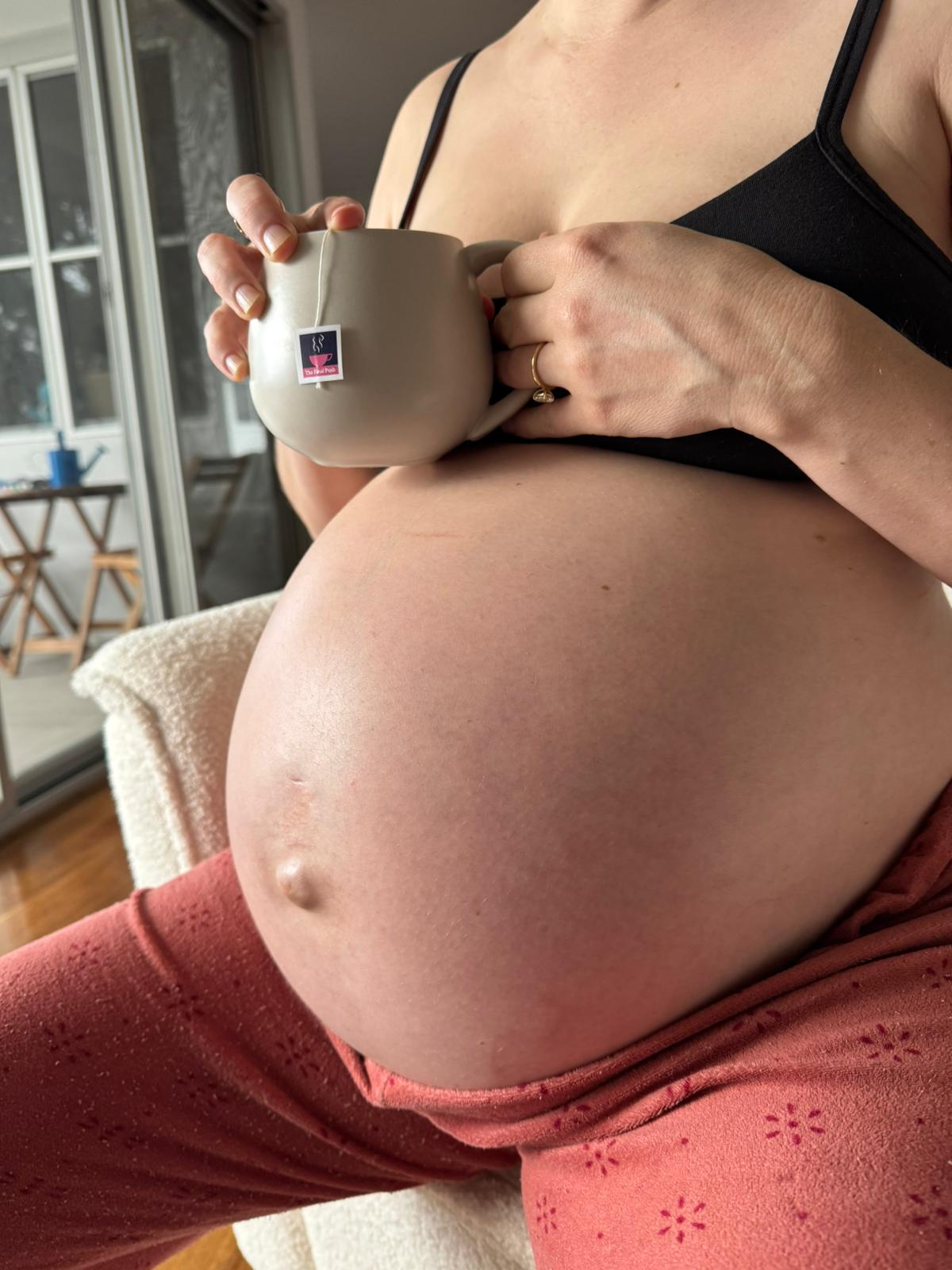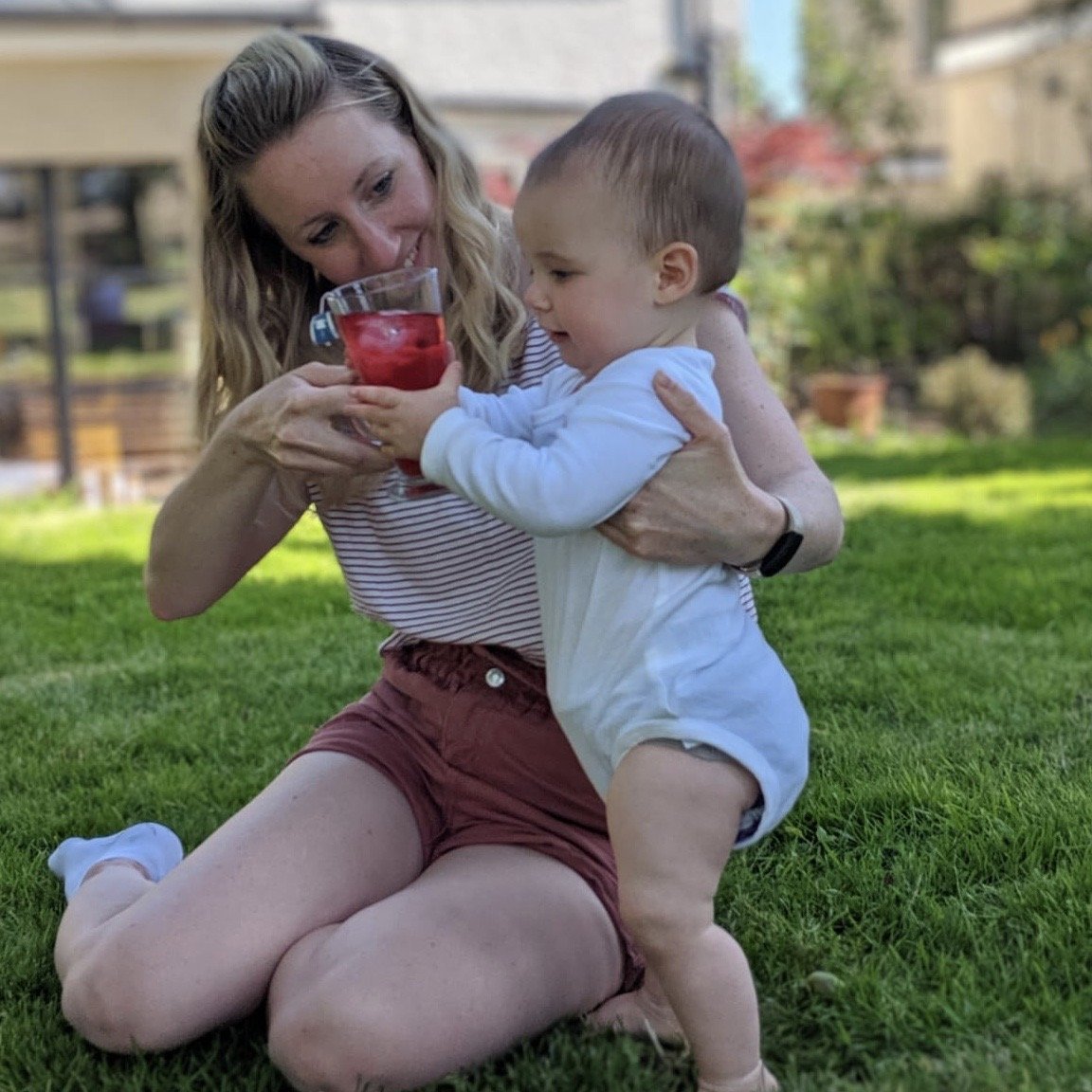Raspberry Leaf Tea - why wait until 32 weeks pregnant?

We don't recommend you start drinking raspberry leaf tea until you're 32 weeks pregnant...
This is because whilst raspberry leaf has been used for millennia to help women prepare for labour, it does this by making the muscles in your uterus contract.
Studies on pregnant rat uterus's show these light contractions happening when fragarine (a component from raspberry leaf) is added to them. And this is also why some women experience braxton hicks contractions when they drink it.
The benefit is that it will build up strength in your muscles, and studies have shown that women who take raspberry leaf before giving birth, have more positive birth outcomes - a shorter second stage of labour and fewer interventions.
But give that it affects your uterus - it is best to avoid it until the later stages of pregnancy. If you talk to your midwife, or doctor, they will likely recommend that you wait until 32, or even 36 weeks to drink the tea. Just to be safe.
Why you should drink raspberry leaf tea...
Tests have been done on taking raspberry leaf from 32 weeks, showing very positive results.
The major one cited, is a double-blind, randomized, placebo-controlled trial consisting of 192 low-risk, nulliparous women who birthed their babies between May 1999 and February 2000 at a large tertiary-level hospital in Sydney, Australia - https://pubmed.ncbi.nlm.nih.gov/10754818/. It found that raspberry leaf, taken from 32 weeks’ gestation until labor, caused no adverse effects for mother or baby, and although it did not shorten labor, a lower rate of forceps deliveries between the treatment group and the control group (19.3% vs. 30.4%) was observed. Another study consisted of 108 mothers; 57 (52.8%) consumed raspberry leaf products, whereas 51 (47.2%) were in the control group.
These are great results from taking from 32 weeks.
And there's no evidence starting earlier than 32 weeks will help you more...
In comparison, the only study available on taking raspberry leaf earlier in pregnancy looked at 57 Australian women who had used raspberry leaf products during pregnancy - https://pubmed.ncbi.nlm.nih.gov/10754818/. The majority (59%) of women began to take raspberry from 30 to 34 weeks onward, followed by 28% starting at 35 to 39 weeks. 13% (this is 7 women!) began using raspberry products between 8 and 28 weeks.
It was a tiny trial, but also showed good outcomes, in women having a lower likelihood of intervention in birth compared to those who didn't take raspberry leaf. BUT, most importantly, it showed (statistically) no benefit to consuming raspberry leaf earlier in pregnancy. At which point, we ask ourselves why you should be encouraged to take it earlier in pregnancy, and have it potentially contract and relax the uterus unnecessarily?
Whilst it may be bad business for us, we'd rather follow millennia of usage, and NHS guidelines to advise you to start from 32 weeks. There is no evidence to show that starting any earlier will give you more benefits, so we would play it safe.
The Final Push - award winning raspberry leaf tea
If you do want to drink raspberry leaf tea while you're pregnant, our Final Push Raspberry Leaf Tea is a delicious blend of raspberry leaf and whole peppermint leaf. Perfect to help both with birth preparation and as a digestive aid towards the end of your third trimester. And don't just take our word for it, it's multi-award winning!

Winner of Dear Bump Awards Gold 2020, Project Baby Awards 2021 Silver, Baby Awards 2019 Best Maternity Product.
What else could help you prepare for labour in the third trimester?
As well as raspberry leaf tea, you can also prepare for labour and hopefully have a positive outcome by...
1. Stay hydrated - drinking up to 8 cups of water a day is ideal. Caffeine-free herbal tea can count towards this.
2. Stay active - giving birth is like a marathon, and you can train for it. Gentle, steady exercise will stand you in good stead for the physical strain of birth.
3. Consider hypnobirthing - a course on hypnobirthing can help you feel extremely prepare for labour. It looks at breathing techniques, but also preparation for you and your partner to make choices in labour - as things can often change at short notice.
4. Eat dates from 36 weeks - this has been shown in small studies to decrease the likelihood of induction. Well worth a shot!
For more in depth tips on preparing for labour read our blog on birth preparation.





Comments